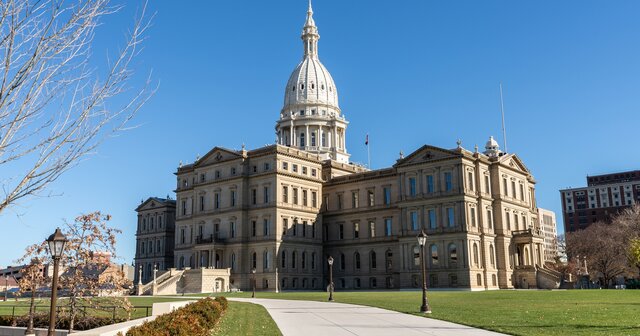
This article originally appeared October 9, 2024.
It’s election season, so public policy ideas ricochet like the ball in a pinball machine. Campaign promises, talking points, proposals and counterproposals — ideas are the stuff of campaigns. And that’s just the beginning. After the election, policymakers will seek to enact their ideas.
The volume of ideas can overwhelm a person who wants to be engaged and informed. How do you sift through it all? Must you read multiple white papers on an issue? Is it time to find your library card and hit the books? Can ChatGPT summarize each candidate’s positions?
Here are six questions to ask when analyzing a policy idea:
One: “Who decides?” A policy proposal can empower people to make more choices for themselves, or it can shift decision-making power to a government agency. Can a person decide to rent out his home on Airbnb or should a zoning board have the final say? Should the state order you to enroll your child in a specific school? The locus of control is an important debate in any policy decision.
Two: “What does this bill actually do?” Lawmakers love to give their bills evocative, PR-friendly names: The Affordable Care Act. No Child Left Behind. The Inflation Reduction Act. This is just marketing. It is not wrong for them to do it, but you should learn to recognize the tactic.
You wouldn’t buy a house based only on the real estate agent’s one-line description — “This is your dream home, waiting to be filled with light, happiness and good memories.” You want to know how many bedrooms it has, what the square footage is, and whether the back yard is big enough for the dog. When analyzing a policy proposal, ignore the sponsor’s stated intent. Look at what the bill does.
Three: “What will this cost?” Politicians often describe a program as “free” when a more accurate description is “someone else will pay.” For example, in her 2024 state of the state address, Gov. Gretchen Whitmer touted three free programs: free school breakfast and lunch, free pre-K, and free community college. We have all learned to consider prices when we spend our own money. If a car salesman refused to tell you the price of a new car, you would suspect a gimmick.
Every idea has tradeoffs. If you spend a dollar on roads, you can’t spend it on teacher pensions. If you incentivize an activity, you will get more of it. A government with too many priorities will compromise its most essential functions.
Four: “Should the government do this, or will the private sector handle it?” I think people intuitively know that every government has its limits, though we may argue over where to draw the line. Some ideas are outside the window of political possibility, also known as the Overton Window. We don’t expect the state to run personal dating services, operate restaurants, manufacture cars or own a Major League Baseball team.
Five: “Will this create new problems we have to manage?” Much of public policy is an attempt to fix the last problem government created. Frightened by the health risks during the COVID-19 pandemic, governors and public health officials shut down society. This slowed economic activity, so the government offered subsidies, forgivable loans and unemployment payments. These handouts led to a predictable explosion of fraud as tricksters stole billions from the aid programs. Shutting schools down created an education calamity, prompting states to spend more money on remedial programs.
Six: “Who benefits?” Does the bill serve all people or just a favored few? Does the policy help the people or the governing class? Does the bill favor one political party over another?
If civic engagement is important to you and you want to be better informed, I recommend starting with these six questions.
Permission to reprint this blog post in whole or in part is hereby granted, provided that the author (or authors) and the Mackinac Center for Public Policy are properly cited.
Get insightful commentary and the most reliable research on Michigan issues sent straight to your inbox.

The Mackinac Center for Public Policy is a nonprofit research and educational institute that advances the principles of free markets and limited government. Through our research and education programs, we challenge government overreach and advocate for a free-market approach to public policy that frees people to realize their potential and dreams.
Please consider contributing to our work to advance a freer and more prosperous state.

Donate | About | Blog | Pressroom | Publications | Careers | Site Map | Email Signup | Contact